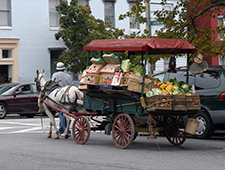
There are certain events, such as severe storms or a crash in financial markets, that catalyze transitions in social-ecological systems, in a process that is akin to the way a hurricane or insect outbreak might catalyze an ecological transition. To understand the patterns that emerge in social-ecological systems, ecologists must understand governance, a process rooted in the key social science concepts of power and networks.
Using illustrations from cities in which long-term social-ecological governance research is underway, this group of urban ecologists and social scientists identifies and synthesizes important governance dimensions of urban sustainability transitions. When ecologists develop pathways for sustainable urban transitions, the authors say, they need to consider not only the ecological conditions, but also people’s values, visions and social relations. They argue that understanding the dynamics affecting governance networks and linking these with environmental stewardship practices is essential to nurturing transformative and sustainable changes in urban ecosystems.








